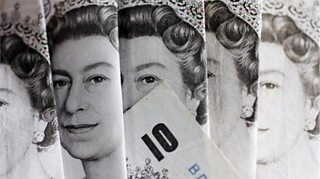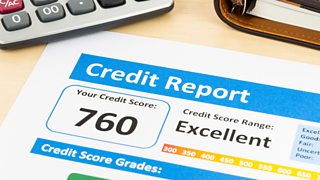What does your credit report reveal — and why should you care?
20 May 2019
A successful application for a loan or mortgage will depend on a positive credit report. But how many of us know exactly what the report is, or what information it holds?
A poor credit rating will limit your options for borrowingEileen Adamson, financial coach
Speaking on Clever about Cash, financial coach Eileen Adamson explained why we should all be aware of what our own credit report reveals.
“A good credit history is likely to mean that more lenders will want to lend to you, offer you better rates of interest and they may offer to lend you larger amounts,” said Eileen.
"A poor credit rating will limit your options for borrowing, and you’re likely to be charged a higher rate of interest.”

What is a credit report?
Financial coach Eileen Adamson explains what information is held on the report.
Your credit history
The three main credit reference agencies – Experian, Equifax and Transunion – gather information about your credit history and from there create a credit report.
The purpose of the report is to demonstrate how well you manage credit, for example whether repayments are made on time and in full. This information will stay on file for at least six years. The report contains the following details:
- Name, date of birth, address
- Details of bank accounts, cards, loans, some mobile contracts and utility bills
“[The report is] used to help lenders decide how much of a risk you are, and can be used by employers and landlords to check basic information about your credit history,” added Eileen.
A positive or negative report can directly impact our lives and, as such, consumer organisation Which? recommends that we check our own credit score regularly, although it has found that most households have not done so.
Information and Support: Debt
Check your credit report
Give your credit report an annual once-over and check for errors which may be contributing to a bad score.
- Make sure addresses are correct, even on accounts you no longer use
- Check for any default, late or missed payments, and query them if you think they're incorrect
- If you no longer have joint accounts, make sure that is reflected in the report
- Cancel unused credit and store cards
The following wesbites allow you to check your report for free:
- for Transunion reports
- for Equifax reports
- for Experian reports
On ´óÏó´«Ã½ Sounds
-
![]()
Clever about Cash
Practical, easy to execute advice which really will make a difference to your pocket.
Latest features from ´óÏó´«Ã½ Scotland
-
![]()
'Wild swimming helps me process the grief of losing my son'
The benefits of cold water therapy.
-
![]()
Winter adventures are appealing, but an expert advises caution
Trips in winter require particular knowledge and skills.
-
![]()
The rescuers: Why volunteers risk their lives in mountain emergencies
Landward meets members of the Cairngorm Mountain Rescue Team.
-
![]()
‘Look for the light’ – practical tips to help you through another winter with SAD
Useful advice and tips to combat low moods at this time of year.
-
![]()
How you could be a binge drinker without even knowing
Binge drinking is classed as fewer units than many people may realise.
-
![]()
How chocolate biscuits and drama classes helped one man leave prison behind
The healing power of creativity.
-
![]()
'When people believe in you, it’s life-changing'
Author Graeme Armstrong revisits the man who helped turn his life around.
-
![]()
The 'breath-taking' display of US birds swept on to British soil
Recent storms have brought rare birds to our shores.
-
![]()
Six things we learned about Alan Cumming on Take the Floor (Spoiler: includes accordions)
The actor spoke to Take the Floor's Gary Innes.
-
![]()
How street gangs trap young men in a dangerous cycle of violence
The almost inescapable pull of life in a gang.
-
![]()
Why stylist Gok Wan believes there's no such thing as bad fashion
The fashion expert says we should stop following rules and do what feels right.
-
![]()
Is sending a CV still the right way to apply for a job?
They've been central to job applications for years, but are they worth it?




















